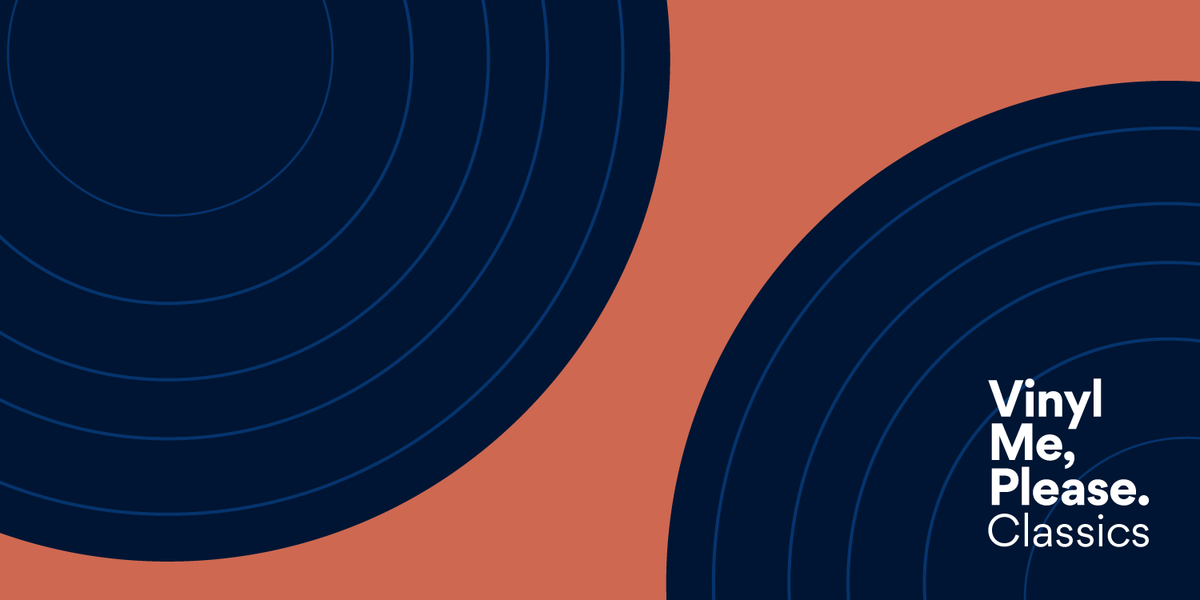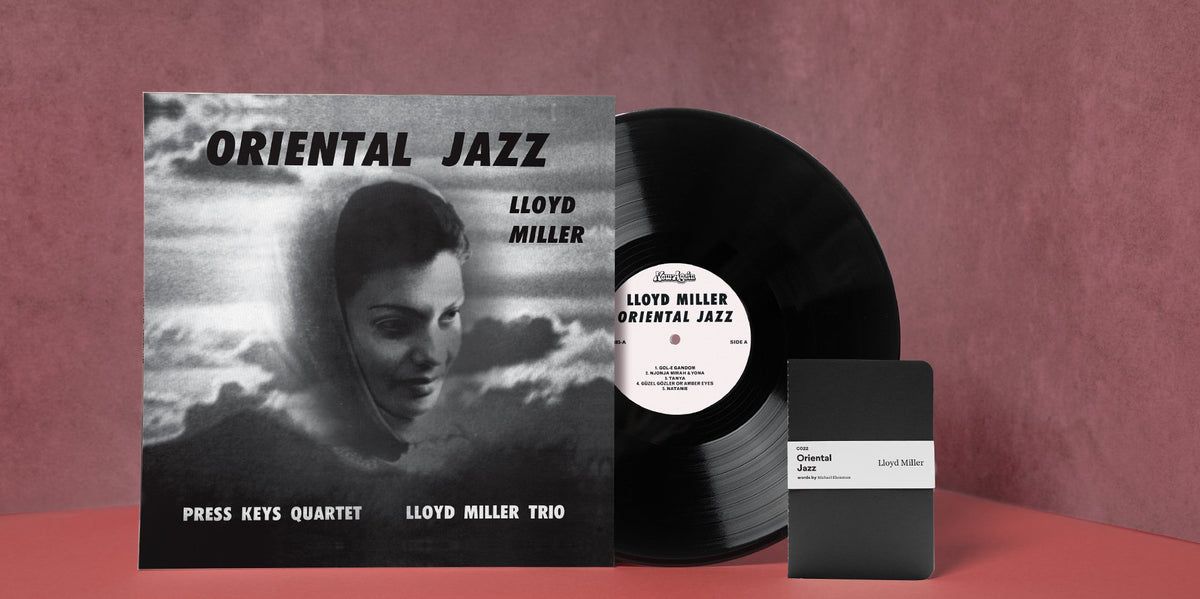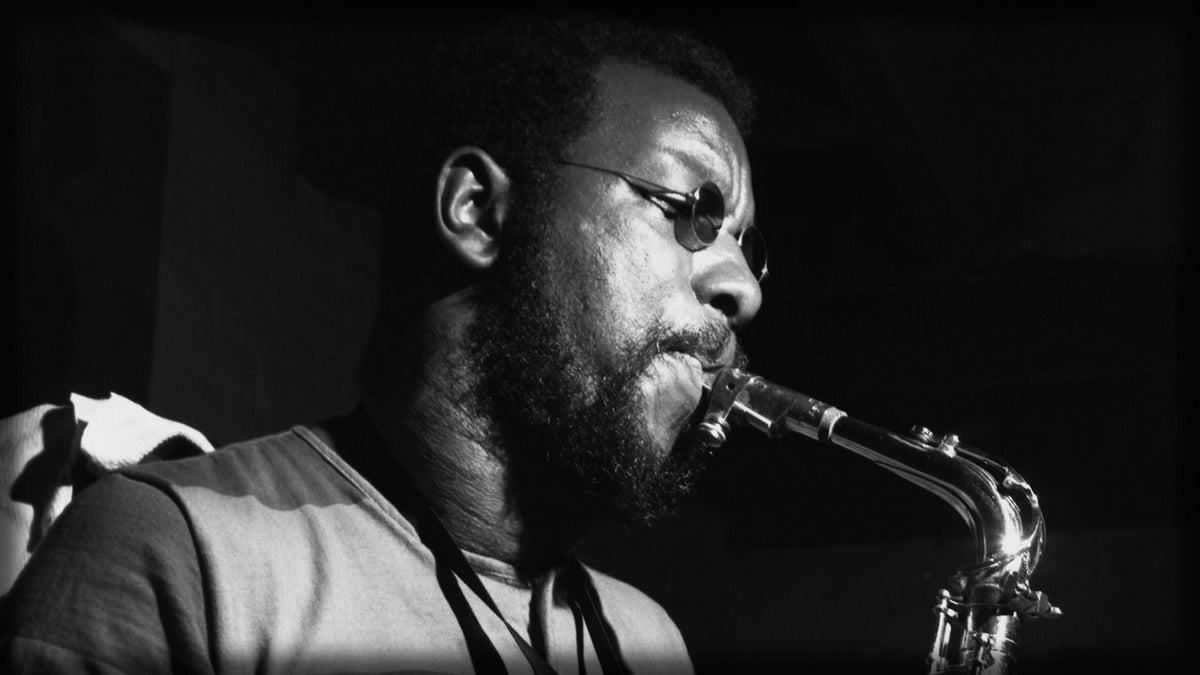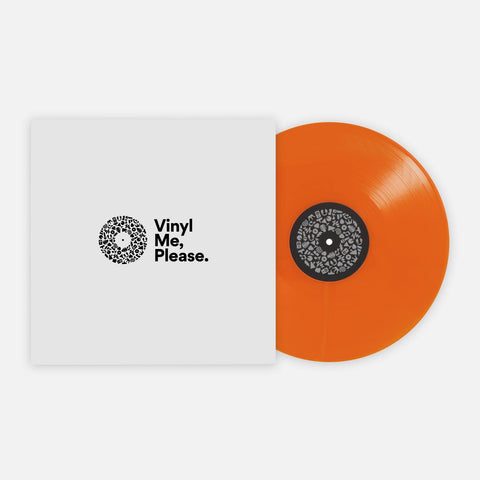Lloyd Miller And The Interconnectedness Of Everything
Read An Excerpt From The Listening Notes For Our Reissue Of ‘Oriental Jazz’
In March, members of Vinyl Me, Please Classics will receive Oriental Jazz, the album from Iranian music expert Lloyd Miller. The album has been a curio, only available in an extremely limited pressing that sells for hundreds of dollars on Discogs, until we partnered with our pals at Now Again to make this happen. Learn more about the album here, and read below for an excerpt from our Listening Notes interview with Lloyd.
It’s a clear afternoon in May in Denver, Colorado, and I’m driving Lloyd Miller — jazz composer, multi-instrumentalist, multi-linguist, ethnographic field recordist, poet, DIY record producer, Iranian television host and PhD scholar of Persian and other Middle Eastern music and literature — to a location where a great amount of personal trauma occurred for him nearly 60 years earlier.
I’m playing a compilation entitled A Century of Setar Music on the car stereo as we drive east on Colfax Avenue, accompanied by his wife of 30 years, Katherine, toward our destination. Since it’s comprised of vintage classics of Persian classical and folk music, Lloyd signals his approval, remarking that this is “the real stuff,” instantly and correctly naming both the individual setar players as well as the percussionists who occasionally accompany them. Perhaps I shouldn’t be surprised; many of these performers are people Lloyd has personally known, played music with and even studied under during his remarkable life and travels. I silence the music as we head off Colfax for a couple blocks and approach our destination, the site of the old Mount Airy Psychiatric Hospital, where Lloyd was involuntarily committed by his parents as a teenager in the 1950s, and where he was subjected to the pain and agony of having — in Lloyd’s own words — his brain “burned out” by electro- and insulin-shock therapy. The building was last seen by Lloyd as he was looking over his shoulder, headed for a freight train that would take him out of town after escaping out of a broken window wearing no shoes, but multiple pairs of socks, in cold February weather. Katherine seems a little concerned that this visit will agitate Lloyd, but he seems remarkably calm, if not a little disappointed that the original building where he stayed has apparently been torn down in the last decade to make way for a fairly hideous new and modern-looking building with a more banal name: the Mental Health Center of Denver. It’s Sunday, and the building is closed, but Lloyd wanders the block reflecting and trying to come to terms with what the experience did to him.
Born in 1938, and raised in Glendale, California, Lloyd Miller must have had one of the most unusual careers in all of jazz. Now in his ninth decade, he cuts a tall and somewhat imposing figure, with smoky lensed glasses and a dark, sharp-looking suit and tie; it’s the quintessential jazz uniform, which he says he wears in public at all times as a badge of his profession. He’s an easy and voluble talker, however, with endless fascinating anecdotes and digressions about the history of jazz, Persian music, philosophy, theology, politics and notable figures he’s crossed paths with. Sometimes there’s a cryptic, or nearly apocalyptic tenor to his conversation, and he imparts his belief in the sense that the events of his life were preordained or occurred with the intervention of a higher power. Heir to a prominent Mormon family, he tells me that “the first and worst mistake I made was being born.”
By age 12, Lloyd was convinced he wanted to be a jazz musician, by 13 he was writing his own transcriptions of clarinetist George Lewis’ solos. He played duos with a neighborhood pal named Spencer Dryden, who he instructed to strike the rim of the bass drum like Baby Dodds. By high school, he had started his first band in his neighborhood; he called the group the Smog City Syncopators. He hated swing music because it was too mechanical and perfect, and chafed at his parents’ desire for him to nurture his talents with formal training. He became a teenage rebel, running out at night, drinking, smoking and occasionally doping. He first heard modern, atonal jazz at a Charles Lloyd club gig after smoking marijuana. He hated the music, but at least it and the joint made him wildly giggle. He did, however, fall in love with the low-key, West Coast sounds of the great clarinetist Jimmy Giuffre, who became one of his main musical heroes. Meanwhile, his relationship with his parents became more and more contentious until he was ultimately shipped to Mount Airy to have his “brain burned out.”
A stint with a foster family followed, and though the experience at Mount Airy left him barely able to remember his own name, feeling his personality blanked out by the shock treatments, he slowly started to piece his psyche back together. He was reunited with his family, but more trouble ensued, this time involving a couple of drug dealers, some cocaine, the law and a borrowed car that belonged to his father. This serious turn of events served as a catalyst for his father to accept a job working for the Shah in Iran, with Lloyd joining his parents for his first extended international journey. Stops in Hong Kong, Japan and Pakistan on the way to Iran deepened the connection to other cultures he’d first felt while listening to that old compilation of world music. Hearing the koto played in the culture that birthed it, he “felt a definite calm and peace, an immense respect from everyone towards everyone else.” He re-established grudges he held against the country of his birth. “It was reconfirmed that America was definitely a mean and unfriendly country, actually the worst place in the world for anyone who is sensitive and immersed in the arts,” he now states. Most importantly, he could finally learn other languages, as he knew he would when he had gazed at that stone at the date farm as an eight year old. For Lloyd, speaking other languages meant he was now “free from my jail.”
Lloyd spent a year in Iran with his family, picking up Farsi after a few short months. Based in Tehran, he got a job working at a warehouse through a family connection, but the main thrust of his activity during this time was immersing himself in the local culture, and steadily gaining more and more of an appreciation for how deep the roots of Persian art run. When he’d come across a new instrument, “[I] didn’t care if I could play it or not, I would just pick up a French horn or sarangi and see what sounds I could make with it.” However, still committed to his decision at age 12 to forge a career in jazz, Lloyd left Tehran in 1958 to head to Europe to see if he could make a living from jazz music. He kicked around the continent, first in Germany, then in Switzerland, Sweden and Brussels. Some gigs were more regular than others, but he eventually hooked up with a somewhat short-lived Swedish group that attempted to break into the Paris jazz scene, and it was in Paris that one of those fortuitous events that mark Lloyd’s life occurred, when he by chance met Jef Gilson — one of the most original players and thinkers in 1960s jazz — while inquiring about recording a session at Jef’s studio that specialized in vanity pressings. These kindred spirits had both been independently conceiving of a version of Eastern-oriented jazz with world music leanings, and Gilson hired Lloyd to be a featured soloist on one of the first European jazz records to use exotic instruments. Gilson also recorded Lloyd’s own experiments and cut them to a small number of acetates. They did a number of gigs together, but seeing as how both player’s primary instrument was piano, it was perhaps destined to be a collaboration with a finite shelf-date. Lloyd eventually decamped back to the States, where he resumed his studies in earnest and ultimately self-released two records that were surveys of various world music styles, before cutting the record that would secure his reputation — if at a somewhat distant point in the future at least.
In the years following his stint with Gilson, Lloyd had become more and more disillusioned with both modern music and modern society. Rock was now the main music of the land, and he believed in all sincerity that the Beatles were the Four Horsemen of the Apocalypse, sent to tear asunder the world’s ancient traditions. Apart from world-jazz pioneer Tony Scott, whom Lloyd had met, jammed with and shared musical theories with in Europe, he was also largely unimpressed with the direction of Eastern-oriented jazz, which he found to be as “fakey” as the white-bread Dixieland that his father had exposed him to in his childhood. In Lloyd’s conception, for a music to have value it had to have a deep connection to a tradition. While in Iran with his family, he had come to the realization that “jazz, and the blues specifically, came to us via Africa, which had come to them from Islamic culture, Iran specifically.” To Lloyd, something like “Tuareg African music is blues, just with no chord changes.”
Oriental Jazz was recorded, compiled and self-released in 1968 while Lloyd was studying at Brigham Young University in Utah. The group came together after Lloyd by chance heard a fellow student named Preston (Press) Keys rehearsing piano in a studio classroom. Both had intended to enter the Intermountain Intercollegiate Jazz Festival separately, but decided they might have a better chance if they pooled their resources. Keys was receptive to Lloyd’s ideas, and they worked up an ensemble that sought to combine Keys’ cool, modal style of playing with Lloyd’s array of exotic instruments and styles. They won the intercollegiate jazz contest, and Lloyd carefully edited the performances from the university’s television broadcast into an astoundingly beautiful and modern sounding document. Traces of Bill Evans, Stan Getz and Jimmy Giuffre rub shoulders with Persian santur, Arab oud and Turkish saz music. Lloyd included songs he’d cut with Gilson in his Parisian studio years before, and a solo piano piece that he recorded in one of the school’s practice rooms. Despite Lloyd’s professed aversion to modernity, there nevertheless is something strikingly new sounding about this music, which fits together in startling juxtapositions. When I ask him about this dichotomy he tells me, “When I hear a santur solo and I see Bird (Charlie Parker), or George Lewis playing… maybe the notes are different but it’s the same.” You see this worldview most graphically at play on “Güzel Gözler (Amber Eyes),” where several different musical forms and modes are abruptly stacked side-by-side in an almost collage-like fashion, which impossibly manages to hang together seamlessly. Despite the exoticness of some of the material, it’s amazing how easily digested the record is, instantly enveloping and inviting. When I ask Lloyd how he accounts for that, he mentions a higher power again: “When I play some force just takes me over, I don’t even let it.”
Originally, Lloyd pressed 300 copies of Oriental Jazz, and he then attempted to distribute them himself, hitting up local shops and selling one or two at the rare gig, as well as sending some out as demos in an attempt to gain wider notice. The World Pacific record label — which should have been a natural fit — got a copy and passed, as did Ahmet Ertegun of Atlantic Records, who apparently loved it, but not quite enough to cut a record deal. Mostly the copies languished for years in his home, until finally being discovered by collectors in the 2000s. At this point, he’s sanguine about it, noting that, “If it’s any good it won’t sell,” and, “If Jesus didn’t want a pocketful of money then I don’t want a pocket full of money, either,” while also acknowledging that as far as his longtime home of Utah is concerning jazz, he “may as well be in the Kalahari Desert.”
However, in the ’70s, following the release of Oriental Jazz, he did gain a fairly large measure of fame. After winning a Fulbright scholarship to study in Iran, he returned to travel all over the Middle East, doing field recordings of traditional musicians and collecting instruments. He studied with a musical and spiritual master who once unwittingly “tried to walk through a wall,” became a practicing Sufi while somehow remaining a devout Mormon and then, eventually, and most improbably, landed a gig hosting a weekly television show where he programed both American jazz and the best traditional Persian musicians he could find. It ran for a number years throughout the ’70s on National Iranian Radio & Television, and was seen by millions of people. He said he would never leave the country. Then, at dinner with friends in Tehran in the late 1970s, he suddenly stood and blurted out “blood will run in the streets of Tehran,” and eventually boarded a Pan-Am flight back to America. The Islamic Revolution began shortly there after.
As we’re standing out on the lawn on the spot where he was committed as a teenager 60 years ago, Lloyd reflects on what happened to him back then, saying, “Maybe the doctors unintentionally saved me... they got me to the point where I don’t see stuff one way or another, that it’s all good or all bad, or you’re good and you’re bad, or that the devil’s only bad. No, we’re all part of something bigger and better, something positive.” Something about this speaks to his worldview, that we can straddle two realms simultaneously, that all the different religions and music come from the same place, that it’s “all the same thing.”
Michael Klausman is a poet, writer, artist, small press publisher and longtime record collector who lives along Colorado’s Front Range. He has previously worked on reissue projects for the labels Paradise of Bachelors, Love All Day, Water Music, Numero Group and Tompkins Square, among others. His most recent book is Aeolian Darts, published by Seance Center in 2017.
Related Articles
Join the Club!
Join Now, Starting at $36Pages







